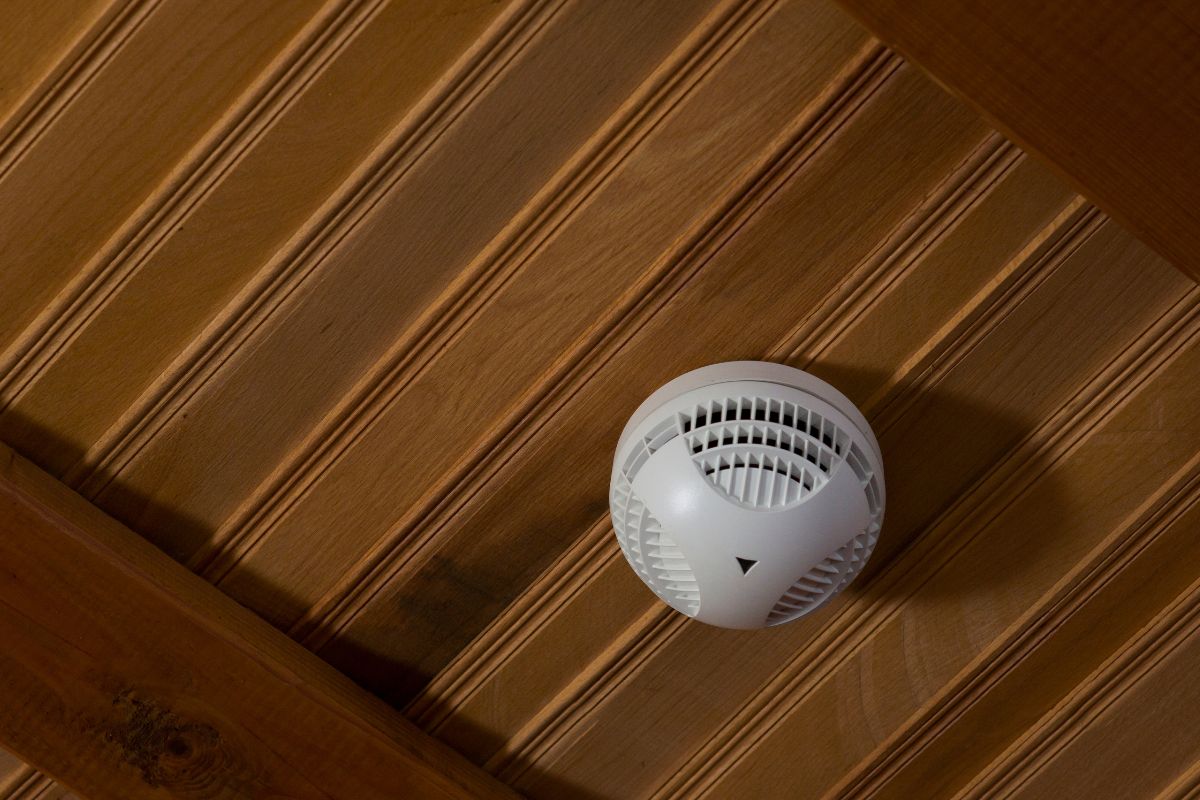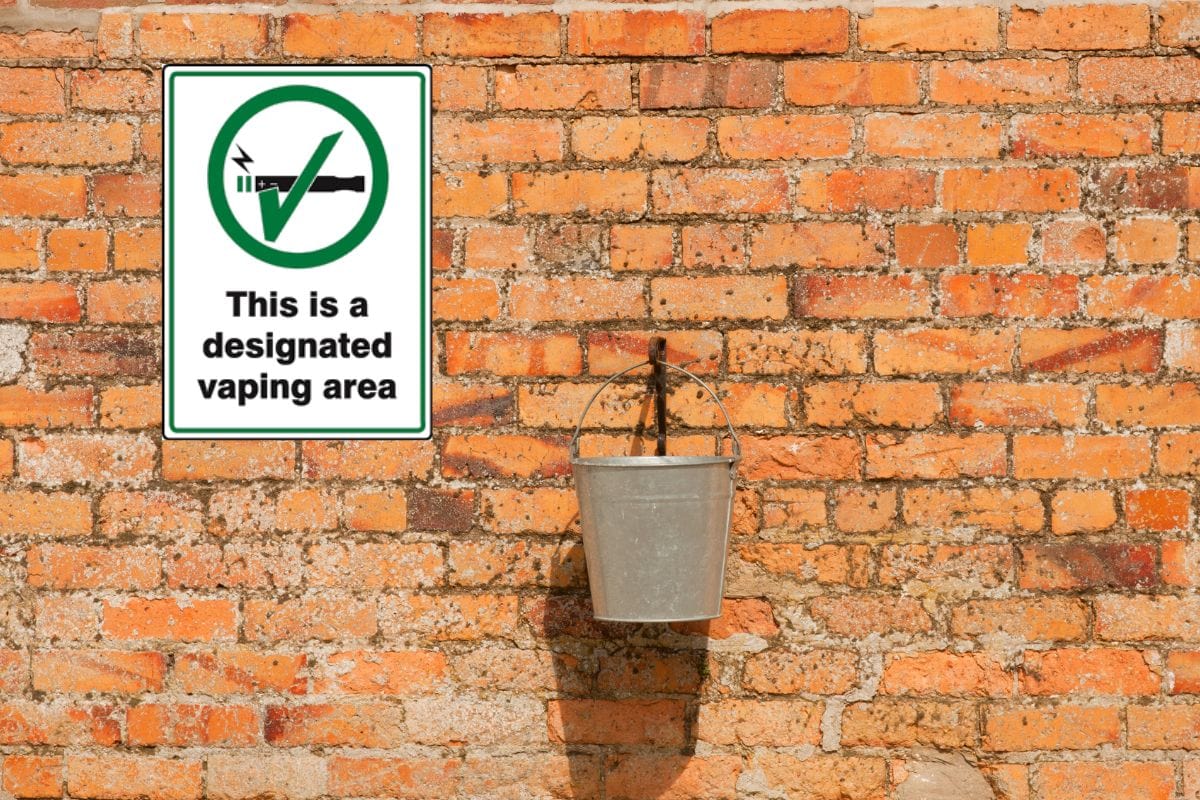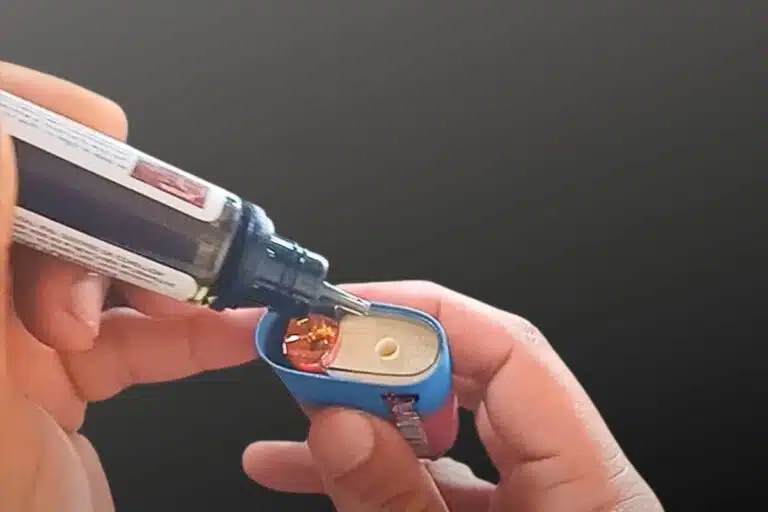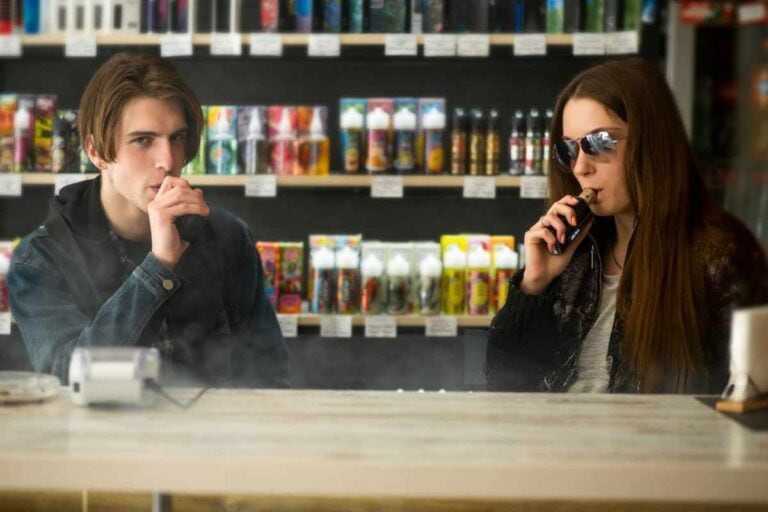Can Hotels Tell If You Vape? Understanding Detection Methods and Risks
Vaping has become increasingly popular, but hotels have strict policies regarding its use in guest rooms and public areas. Many treat vaping the same as traditional smoking, prohibiting it in non-smoking rooms and designated smoking rooms, and enforcing fines for violations.
But can hotels actually detect if you vape in your room? The answer is yes—hotels use multiple detection methods, from scent recognition to advanced vape detectors that can instantly alert staff.
Table of contents
Before you decide to vape in your hotel room, it’s essential to understand the risks, detection methods, hotel rules, and best practices to avoid fines or penalties.
Understanding Hotel Vaping Policies
Most hotels have strict no-smoking and no-vaping policies, especially in non-smoking rooms. However, some hotels provide some smoking policies:
- Smoking rooms – Some hotels provide rooms where vaping and smoking may be allowed.
- Designated outdoor areas – Many hotels offer specific spaces for smokers and vapers.
- Cannabis-friendly hotels – In regions where cannabis use is legal, some hotels have lenient policies.
- Lenient policies at cannabis-friendly hotels (in legal areas).
Before vaping, always check the hotel’s official policy to avoid unexpected penalties.
Why Do Hotels Ban Vaping?
Hotels prohibit vaping for several reasons:
- Odor and residue buildup – Vape aerosols can cling to walls, curtains, and furniture.
- Health concerns – Vaping produces chemicals that may affect guests and hotel staff.
- Fire hazard prevention – While vaping doesn’t involve flames, some hotels categorize it as a smoking-related risk.
- Guest experience – Many non-vaping guests prefer a clean, odor-free environment.
Before vaping, always check the hotel’s official policy to avoid unexpected penalties.
Risks of Vaping in Hotel Rooms
| Risk | Description |
|---|---|
| Violation of Hotel Policies | Many hotels have strict no-smoking and no-vaping policies, leading to fines or eviction if caught. |
| Smoke Alarms Activation | Some vape clouds can trigger sensitive smoke detectors, causing false alarms and potential penalties. |
| Odor & Residue Build-up | Although vapor dissipates faster than smoke, repeated vaping can leave odors and residue on furniture and walls. |
| Security Deposit Loss | If the hotel detects vaping, you may lose your security deposit or face extra cleaning charges. |
| Risk of Fire Hazards | Poorly stored vape batteries or charging mishaps can cause overheating and fire risks. |
| Surveillance & Detection | Some hotels use air quality monitors or security cameras in hallways to detect smoking or vaping. |
| Guest Complaints | Vaping in non-smoking rooms may disturb other guests, leading to complaints and possible action from hotel management. |
| Health Concerns for Others | Even though secondhand vapor is less harmful than smoke, some guests may have sensitivities or allergies. |
| Legal Consequences | In certain locations, vaping in prohibited areas can result in fines or legal action. |
| Reputation Damage | If caught, you may be blacklisted from certain hotel chains, affecting future stays. |
Health Risks
While vaping is often marketed as a safer alternative to smoking, it still carries its own risk of potential health risks, including:
- Exposure to harmful chemicals – Vaping can release toxins like formaldehyde, acetone, and other volatile compounds.
- Lung irritation – Inhaling vapor in a poorly ventilated room can cause breathing issues.
- Health concerns for staff and guests – Secondhand exposure to vapor particles may be harmful, particularly for those with respiratory conditions
Hotels aim to provide a clean and safe environment for all guests, which is why many enforce vaping bans.
Liability and Property Damage
Vaping in a hotel room can lead to unexpected costs for hotel management, including:
- Cleaning fees – Hotels may charge up to $250–$500 for deep cleaning if vaping is detected.
- Damage to furniture – Vape residue can stain bedding, curtains, and walls.
- Fire alarm disruptions – Some vape devices trigger smoke alarms, leading to fines or even evacuation fees.
- Possible eviction – Repeated violations of hotel policies may result in being removed from the premises without a refund.
Hotels reserve the right to charge guests for property damage, so vaping in a non-smoking room could be a costly mistake.
Detection Methods Used by Hotels

Hotels use multiple methods to identify whether hotel guests have vaped in their rooms.
Scent Detection
- Hotel staff can detect the smell of vaping long after the activity has taken place.
- Fabric surfaces (towels, curtains, bed linens) absorb vape odors. Some hotels use air quality monitoring systems to detect vape smoke.
- Some hotels use air quality monitors to detect smoke and vapor.
Visual Evidence
- Hotel staff can detect vaping through visual evidence, including signs of vaping on mattresses and bedding.
- Sticky residue from vapor can be visible on mirrors, glass, and surfaces.
- Oily buildup on furniture may indicate vaping activity.
- Hotel staff may also check for vaping residue on mirrors, bedside tables, or window glass.
Smoke Detectors and Alarms
Sensor detectors – These devices detect smoke by using light beams. They are equally helpful in catching a cloud of vapor and E-cigarette smoke. Nowadays, hotels can install sophisticated smoke detectors that include both systems. In any case, you can’t determine the alarm:
- Modern smoke detectors can indeed detect vaping vapor. Many countries require hotels to install smoke detectors in their rooms can detect vape aerosols in the air.
- Hotels install vape sensors in rooms to monitor vaping activity.
- Triggered alarms may result in fines or hotel staff intervention.
Some vape detectors are integrated with hotel security systems, making it almost impossible to vape indoors without being caught.
Can You Vape in a Hotel Room Without Getting Caught?
| Method | Effectiveness | Risks & Considerations |
|---|---|---|
| Using a Smokeless Vape (Low-Vapor Device) | Moderate | Produces less vapor, reducing detection risk, but not foolproof. |
| Blowing Vapor into a Wet Towel | Low | Helps absorb vapor, but lingering odor may still be detected. |
| Vaping in the Bathroom with the Shower Running | Moderate | Steam can help mask vapor, but some alarms detect particles beyond smoke. |
| Using an Air Purifier or Fan | High | Helps disperse vapor quickly, but won’t eliminate all traces. |
| Covering the Smoke Detector | Unsafe & Illegal | Tampering with hotel fire safety equipment can result in fines and legal consequences. |
| Choosing a Smoking Room or Balcony | Best Option | Smoking rooms are more lenient, and outdoor vaping reduces detection risk. |
| Opening Windows & Increasing Airflow | Moderate | Helps ventilate vapor, but scent and residue may linger in fabrics. |
| Using Odor-Neutralizing Sprays or Candles | Low | Masks odor temporarily, but housekeeping may still notice residue or lingering smell. |
| Avoiding Frequent Vaping Indoors | High | Minimizing use indoors significantly lowers detection risk. |
| Booking a Vape-Friendly Hotel | Best Option | Some hotels allow vaping in designated areas or rooms, eliminating the risk of fines or eviction. |
While some people attempt to make smoke particles avoid detection, vaping in a hotel room still carries risks. Here’s how guests try to minimize detection:
Researching Hotel Policies
If you plan to vape while staying at a hotel, consider the following tips:
- If the hotel allows vaping – Some hotels permit vaping in smoking rooms.
- Guest reviews – Previous guests may mention if vaping is tolerated.
- Front desk confirmation – Call and ask about vaping policies before your stay
Minimizing Vape Smoke
Some vaping devices produce less visible vapor, making them harder to detect:
- Pod systems (like Juul) – These create minimal vapor and odor.
- High-PG e-liquids – Produce smaller clouds than high-VG liquids. Ensure good ventilation by opening windows.
- Nicotine salts – Often have weaker smells compared to traditional vape juices.
Even with precautions, vaping indoors still carries risks of detection and penalties.
Emerging Technologies and Solutions

Advanced Vape Sensors
Hotels are now installing high-tech vape detectors, which can:
- Hotel vape detectors can detect vaping vapor and alert hotel staff.
- Vape sensors can be integrated with security technology and building management systems.
- Some hotels use sophisticated smoke detectors that incorporate both ionization and photoelectric systems.
- Vape detectors can help hotels maintain a safe and healthy environment.
Designated Vaping Areas
Many hotels now offer:
- Many hotels provide designated vaping areas or smoking rooms for guests.
- These areas can help minimize the impact of vaping on other guests.
- Designated vaping areas can also help hotels maintain a positive reputation.
- Hotels can provide clear information to guests about designated vaping areas.
Choosing a vape-friendly hotel is the best way to avoid penalties while enjoying your stay.
Consequences of Vaping in a Hotel Room
If a hotel catches you vaping inside, you could face:
- Fines of $250 or more for breaking no-smoking policies.
- Extra cleaning fees for odor and residue removal.
- Eviction without a refund if you repeatedly violate hotel rules.
- Legal consequences in areas where vaping indoors is regulated.
To avoid unnecessary trouble, always follow hotel policies regarding vaping.
Conclusion: Should You Vape in a Hotel Room?
Key Points
- Hotels have multiple ways to detect vaping, including scent detection, vape residue, and specialized smoke sensors.
- Vaping indoors can result in fines, cleaning fees, or even eviction.
- Some hotels allow vaping in designated areas, so check policies before booking.
- Using vape-friendly hotels is the best way to enjoy vaping without penalties.
Frequently Asked Questions
Can I vape in a non-smoking hotel room?
Most hotels prohibit vaping in non-smoking rooms. Check policies before booking.
Can I use my own vaping device or should I only use disposable ones?
It depends on the hotel’s policy. Some hotels may allow vaping in designated areas.
What happens if I get caught vaping in a hotel room?
You may be fined, charged for deep cleaning, or even asked to leave the hotel.
Are vape detectors real?
Yes. Many hotels now use vape-specific sensors that detect aerosol particles in the air.











